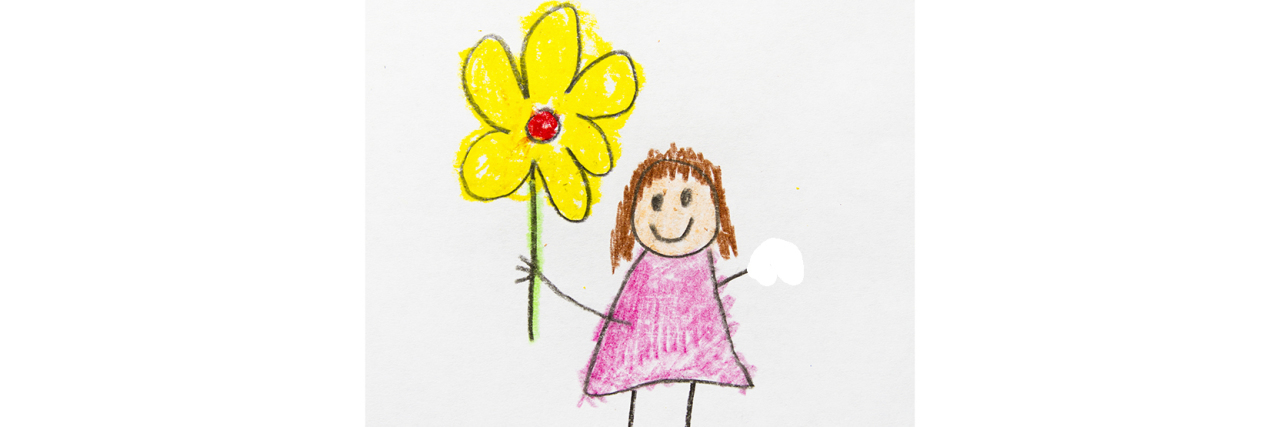When I Realized I'm Happy the Way I Am
“So, can you, like, hold a crayon?” one of the girls in my first-grade class asked.
I had been holding a pink Crayola in my right hand.
“In your funny hand?” she corrected herself.
I quickly switched the crayon from my “good” hand to my amputated limb, nicknamed Army. She watched in awe as Army made jagged motions that resulted in my name being scratched out on paper.
Having been amputated at 3 months old, I was accustomed to questions about my arm and what I could or couldn’t do. At school, I entertained the other 6-year-olds with “magic tricks,” such as holding crayons, buttoning my coat, and drinking from a bottle. From my perspective, these were normal questions for any child to be asked. I never paid attention to the smirks on their faces or gleams in their eyes as they asked me to use Army to draw another ice cream cone. It didn’t matter what they thought; I was happy the way I was.
In third grade, a new girl entered my school. As nice as I tried to be to her, I couldn’t help but despise the way she made fun of Army, or as she called it, “Stumpy.” I didn’t know why it was an insult, only that her tone wasn’t mean to be affectionate. I hid from her, often hiding in the bathroom where I could cry without her knowledge or her taunts of “crybaby.”
As I grew older, I knew I had to start coming up with answers for questions like, “What happened to your hand?” “Does it hurt?” “Can you hold a crayon?” “Why is it so funny looking?” and “What did you do that made you such a freak?” Kids would always laugh after that question, no matter how many times my friends or baby brother said, “It’s not funny.” I tried to prepare myself to talk about Army, to tell them it wasn’t funny myself, but I never could. I didn’t know how to answer those questions.
One night I sat in my mother’s room, holding her torso tightly as possible, in tears. I was struggling to answer those questions, without asking one of my own, one about why I had to lose my hand.
I had forgotten I was ever happy the way I was.
When I was in the ninth grade, my theatre group was given blue printer paper and asked to write about perfection. The goal was to figure out what perfection meant to each of us, and to formulate a show based on that idea. I picked up a yellow pencil and watched everyone at my table struggle to write. I looked at the paper, and immediately knew just what to put down on that paper.
For the first time, I found words to discuss Army. I could finally say how hard it was to watch everyone else tie their shoes perfectly and cut their own pancakes easily, while I had to ask for help with both. I could say that I hated having no control over my physical appearance or being isolated for being an amputee. None of that mattered.
I realized I was happy the way I am.
I was truly happy. Army was the one distinguishing feature I had. There were other girls with dirty blonde hair and brown eyes. Army was something that was all mine, something nobody else had. I had come far from the innocent days of impressing classmates with chicken scratching and I would still face the taunts over a simple procedure that happened at 3 months old. I had finally arrived at a point where I was truly happy with Army.
My director approached me a few days later. He asked if I would be comfortable delivering what I had written in the form of a monologue. I grinned.
“Yeah,” I agreed, “I’d be happy to.”
This article originally appeared in the New York Public Library Community Writing Challenge.
We want to hear your story. Become a Mighty contributor here.
Thinkstock photo by Schulte Productions.

